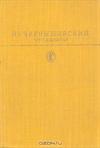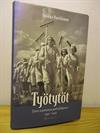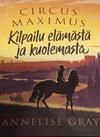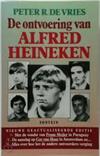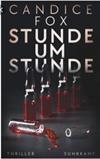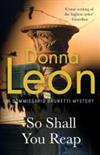The Buried Book
Registered by  GoryDetails
GoryDetails of Nashua, New Hampshire USA on 11/27/2022
of Nashua, New Hampshire USA on 11/27/2022
 This Book is Currently in the Wild!
This Book is Currently in the Wild!
 GoryDetails
GoryDetails of Nashua, New Hampshire USA on 11/27/2022
of Nashua, New Hampshire USA on 11/27/2022 This Book is Currently in the Wild!
This Book is Currently in the Wild!
1 journaler for this copy...
 I found this softcover in this Little Free Library in Concord NH while dropping off some books of my own, and nabbed it for another release copy.
I found this softcover in this Little Free Library in Concord NH while dropping off some books of my own, and nabbed it for another release copy. Subtitled "The Loss and Rediscovery of the Great Epic of Gilgamesh," it's about the rediscovery of the clay tablets bearing the ancient epic Gilgamesh, and is highly enjoyable. I had only the vaguest idea of how cuneiform writing was deciphered - the details include some scenes that would make Indiana Jones turn pale - nor that archaeologists have found fragments of everything from the famed epic to whiny notes scribbled - er, punched? - by students complaining about the treatment their tutors were giving them. (This is similar to some of the discoveries in Egyptology, where formerly-overlooked fragments of stone turned out to be the Post-it notes of the day, containing scribbles about shopping lists, family affairs, and humor.)
The story of the tablets containing the epic - well, containing several different versions of it, as it turned out - includes adventures in archaeology, considerable inspiration, and flat-out hard work, plus some daunting classism: key players in the story include George Smith, a commoner who taught himself languages and was instrumental in discovering the fragments of the epic among the British Museum's heaps of fragmentary tablets, and Hormuzd Rassam, a native Assyrian who discovered the tablets in the first place. Both men had to deal with prejudice by their superiors at the museum, and Rassam especially suffered the humiliation of having his name removed from the list of credits regarding the items he had found. [He also spent time working as a diplomat in the Middle East, being imprisoned himself while trying to negotiate the release of a hostage during the 1860's. If there hasn't been a film of his life yet, it's a missed opportunity!]
The book is told backwards, more or less, opening with the author's account of his own investigations leading him into the Central Archive of the British Library; this involved some very pre-internet steps, with one person just happening to recall someone else who just might know where he could find what he was looking for.
From there we go to the 1870s, when George Smith, an engraver, spent his lunch hour at the British Museum studying the Mesopotamian tablets. (There's an aside explaining how Henry Rawlinson found a key to deciphering cuneiform; that, too, would make a dandy film.) Smith, having learned from Rawlinson, was able to decipher many of the fragments, and one day he happened upon a familiar-sounding plot having to do with a great flood and a special boat... and thus was the Epic of Gilgamesh rediscovered.
The book follows Smith to his tragically early end, and then jumps back a few decades to when Rassam found the tablets among the already-excavated ruins of Ashurbanipal's library, and going on to describe his other adventures, from the dramatic diplomatic mission to a testy lawsuit against the man he claimed had deprived him of his proper recognition. [I've read other accounts of scientists - who, ideally, should be defending truth no matter where it comes from - going to great lengths to steal others' ideas, blacken their reputations, and in some cases utterly ruin their lives; Rassam didn't suffer quite as badly as others I've read of, but it does seem he was treated more cavalierly than he would have been if he'd been of high-class English birth.]
The book moves still farther back in time, to examine Ashurbanipal's times and the founding of the library - more fascinating stuff here. And eventually the book treats with the Epic of Gilgamesh itself, discussing the plot and its various interpretations - there are quite a few different copies, with variations in the text. [Some of the copies are themselves signed by the scribe responsible for writing them; I was impressed at those little human touches from someone who was pressing his reed into wet clay over 3500 years ago.]
There's an unusual epilogue, too, dealing with modern-day interpretations of the epic - including one produced by Saddam Hussein, a romance novel/political allegory called Zabibah and the King. The author suggests that there are quite a few elements from the Epic of Gilgamesh in Hussein's book, though I admit that the description does not tempt me to read it! [I have read other works inspired by the epic, including After Hours: Tales from the Ur-Bar and Angels in Hell.]
I really enjoyed this book, for its badass-librarian aspects, for the fascinating history of the tablets containing the epic, and for the personalities of those who helped discover and decipher this proto-classic. Recommended!
Journal Entry 2 by  GoryDetails
GoryDetails at Little Free Library, Marshall St in Billerica, Massachusetts USA on Monday, November 28, 2022
at Little Free Library, Marshall St in Billerica, Massachusetts USA on Monday, November 28, 2022
 GoryDetails
GoryDetails at Little Free Library, Marshall St in Billerica, Massachusetts USA on Monday, November 28, 2022
at Little Free Library, Marshall St in Billerica, Massachusetts USA on Monday, November 28, 2022
Released 1 yr ago (11/28/2022 UTC) at Little Free Library, Marshall St in Billerica, Massachusetts USA
WILD RELEASE NOTES:
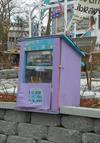 I left this book in this colorful Little Free Library on this lovely day; hope someone enjoys it!
I left this book in this colorful Little Free Library on this lovely day; hope someone enjoys it![See other recent releases in MA here.]
*** Released for the 2022 e-less challenge. ***
*** Released for the 2022 The The challenge. ***

